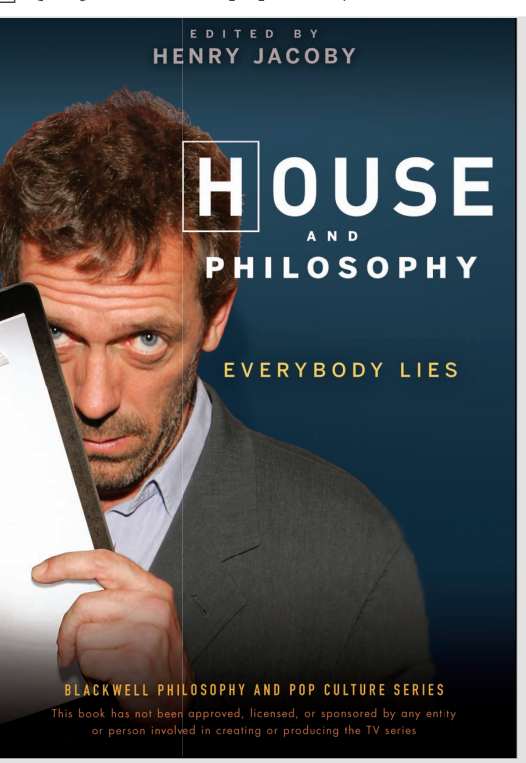

\"House and Philosophy: Everybody Lies\" is a fascinating collection of philosophical essays that uses the popular television series \"House M.D.\" as a lens for exploring fundamental questions about ethics, medicine, truth, human nature, and the practice of healthcare. Edited by Henry Jacoby, this anthology brings together philosophers, ethicists, and scholars who examine the complex moral and philosophical issues raised by Dr. Gregory House\'s unconventional medical practice and abrasive personality. The book demonstrates how popular culture can serve as a vehicle for serious philosophical inquiry, using the compelling character of House and his medical cases to illuminate timeless questions about what it means to be human, how we should treat one another, and what constitutes ethical behavior in professional and personal contexts.
The collection explores House\'s famous assertion that \"everybody lies\" as a starting point for examining epistemological questions about truth, knowledge, and human nature. Various contributors analyze whether House\'s cynical worldview accurately reflects human psychology or represents a defensive mechanism that protects him from emotional vulnerability. The essays delve into philosophical traditions from ancient skepticism to modern existentialism, examining how House\'s approach to diagnosis mirrors philosophical methods of inquiry that question assumptions and seek underlying truths beneath surface appearances. The book investigates whether House\'s diagnostic brilliance justifies his often cruel and manipulative behavior toward patients and colleagues, raising fundamental questions about the relationship between ends and means in ethical decision-making.
Medical ethics forms a central theme throughout the collection, with essays examining House\'s frequent violations of patient autonomy, informed consent, and professional boundaries. Contributors analyze specific episodes and cases to explore competing ethical frameworks including deontological ethics, utilitarianism, and virtue ethics, asking whether House\'s results-oriented approach can be morally justified when it saves lives but tramples on individual rights and dignity. The book addresses complex issues such as paternalism in medicine, the role of suffering in human experience, and the tension between compassionate care and objective scientific analysis.
The anthology also explores House\'s character through the lens of various philosophical traditions, examining whether he embodies the Nietzschean concept of the übermensch who creates his own values beyond conventional morality, or whether he represents a tragic figure whose intellectual gifts are undermined by emotional and social dysfunction. Essays investigate themes of addiction, isolation, and the relationship between genius and madness, drawing connections to philosophical discussions about the nature of human flourishing and the costs of exceptional ability. The book examines House\'s relationships with colleagues like Dr. Wilson, analyzing concepts of friendship, loyalty, and moral responsibility in professional contexts.
Several contributors explore the show\'s treatment of religious and spiritual themes, examining House\'s atheism and scientific materialism in contrast to patients and colleagues who find meaning through faith. The book addresses questions about the role of hope, meaning, and transcendence in healing, and whether House\'s rejection of spiritual explanations limits his understanding of human experience. Other essays focus on the diagnostic process itself as a form of philosophical inquiry, comparing House\'s method of differential diagnosis to processes of logical deduction and hypothesis testing used in philosophy and science.
The collection concludes by examining broader questions about healthcare systems, the commodification of medicine, and the social responsibilities of medical professionals. Contributors analyze how the show reflects contemporary anxieties about healthcare delivery, doctor-patient relationships, and the tension between technological advancement and humanistic care. Throughout the anthology, the editors and contributors demonstrate how entertainment media can serve as a rich source for philosophical reflection, showing that serious intellectual inquiry can emerge from popular culture when approached with scholarly rigor and philosophical sophistication. The book ultimately argues that House\'s character, despite his flaws, raises important questions about integrity, excellence, and the complex moral landscape of modern medicine that deserve careful philosophical consideration.
























.jpeg)

.jpg)











.jpg)



.jpg)

.jpg)

.png)




.jpg)





.jpg)




.jpeg)
.jpg)





.jpeg)

.jpeg)





.jpeg)


.jpg)











